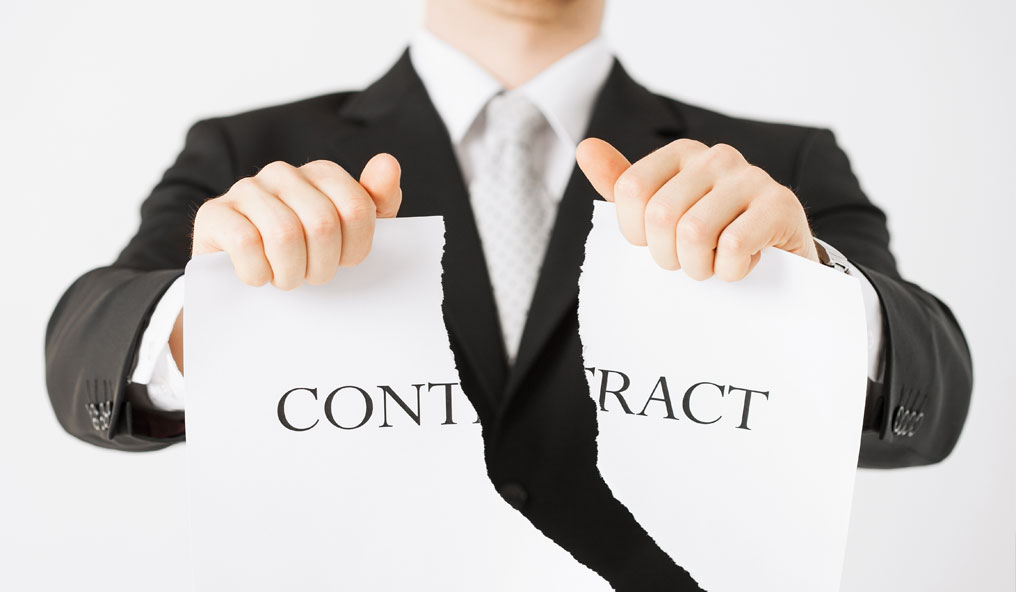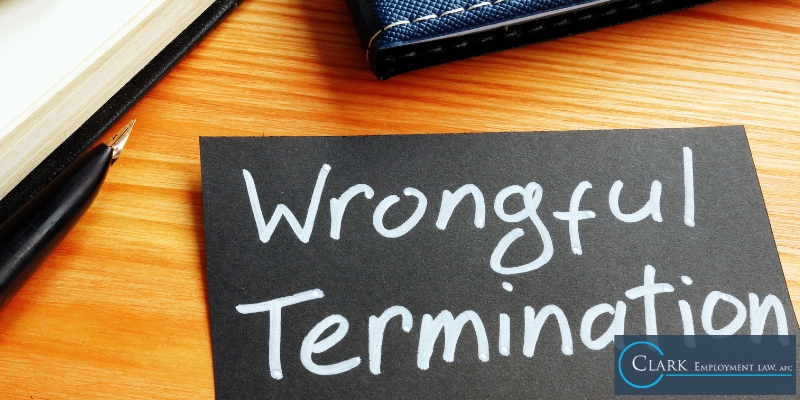Sacramento Wrongful Termination Lawyer
Sacramento Wrongful Termination Attorney

Getting fired from your job is seldom an enjoyable experience, even if you don’t love your workplace. It’s natural to feel stressed, confused, and ashamed in the aftermath of unexpectedly losing your main source of income.
Corporations and business owners wield a great deal of power and influence in our society. The majority of jobs in the modern marketplace are also at-will, non-union positions, meaning that employers have broad authority to terminate your employment without notice for any number of different reasons. That doesn’t mean someone can fire you for just any reason, however.
There are a number of protected conditions in the State of California, and it’s illegal for an employer to fire you based on any of those circumstances. Discrimination in the workplace is illegal, and when it takes the extreme form of wrongful termination, it can wholly strip a person of their ability to support themselves. Thankfully, you don’t have to stand for it.
If you believe you’ve been fired for an unlawful reason, the high-powered legal team at Clark Employment Law is standing by to assist you in protecting your rights. Clark Employment Law is intimately familiar with wrongful termination law, Sacramento courts, and some of the area’s most prominent employers.
When you need to stand up for yourself after being wrongfully terminated, Clark Employment Law’s top-of-the-line Sacramento wrongful termination attorneys will stand by your side. We won’t stop fighting until justice is done, you have received the compensation that is rightfully yours, and the wrongs done to you have been set right.
Identifying Wrongful Termination in Sacramento, CA
In the immediate aftermath of being fired, your emotions may be running high. People can naturally take losing their jobs very personally and may be upset, leading them to feel that they were wrongfully terminated even if they have no solid legal grounds for pursuing a wrongful termination claim.
After you’ve been fired, you might find yourself going over the situation in your head, second-guessing your own actions, or wondering about your former employer’s true motivations. The whole ordeal can represent one of the most stressful and confusing passages in someone’s life.
The criteria for classifying a firing as wrongful termination are fairly concrete. Losing your job qualifies as legally actionable wrongful termination if any of the following are at play:
- You were fired as a form of retaliation. For example, you cannot be fired for reporting unsafe working conditions, exercising your rights under established labor law, or confronting your boss about illegal workplace practices. A whistleblower is a protected class of employees. If you are fired or otherwise retaliated against at work for reporting illegal practices, that itself is illegal.
- Your firing is in breach of an employment contract. If you’re working under a contract, make sure you understand the terms inside and out. A qualified employment lawyer can help with this.
- You have been fired in violation of anti-discrimination laws. An employer cannot fire you based on your race, religion, sex, gender, etc.
- Sexual harassment was a factor in your firing. An example would be if a boss fires you or denies you a promotion because you refuse to go on a date with them.
- Your firing is in violation of labor laws. California has a number of laws on the books to protect working people, and there are also robust federal regulations in place.
Although legal codes provide fairly clear definitions for wrongful termination, that does not necessarily mean that proving wrongful termination in a court of law will be a simple, cut-and-dried matter. The quality of the evidence you’re able to gather, as well as the quality of your legal representation, will impact your ability to prove wrongful termination in court.

Gathering the Necessary Evidence
A wrongful termination claim can be a tricky and delicate legal proceeding from the moment you’re fired. The unfortunate reality is that most employers are not required to give you any reason at all when they let you go. This is a fundamental tenet of the “at-will” employment culture that dominates today’s job market.
Corporate and political interests sometimes like to use their media access to tout at-will employment as a mutually beneficial situation, but the truth is that at-will employment agreements heavily favor employers in many ways. One manifestation of that power imbalance is in the fact that employers get almost unlimited authority to fire anyone, at any time, without stating any reason.
Despite being very aware of this law, many employers will still feel inclined to let you know why they’re getting rid of you. This could happen in a number of different contexts. If you have a decent manager who wants to offer you earnest feedback so that you succeed in your next role, this discussion may be held on good terms and may even be for your own benefit.
It is perhaps unlikely that you would have a valid wrongful termination claim against such a good-faith employer, but it’s important to explore all available information fully before making that determination.
Sometimes friendliness and false camaraderie can be effective masks for underlying illegal activity. Other times, a boss merely wants to do this for their own ego, making sure they have one last chance to berate you on your way out the door.
Regardless of how your ex-employer approaches this sensitive discussion, listen carefully, and ask relevant questions without engaging in any heated back-and-forth argument. If any of your employer’s stated reasons for letting you go are rooted in discrimination or retaliation, this constitutes a serious crime and a violation of your rights.
Whether your employer gives you a reason for your firing or not, you’ll need to collect some form of evidence to move forward with a wrongful termination claim. Request a full copy of your employee file. If possible, do this before leaving your workplace on the day you’re fired. If your workplace refuses to give you a copy for any reason, make sure you document all communications related to the request.
Your employee file should contain details about your performance and any issues leading up to your firing that will allow your wrongful termination attorney to determine whether you have a valid wrongful termination claim. Even if your employee file contains no explicit reason for your firing, it can provide valuable clues as to whether discrimination or other illegal activity was at play.
For example, if your annual performance reviews show that you were doing satisfactory work, but your employer states that you were fired for poor performance, this discrepancy could become relevant in court when trying to prove wrongful termination. There is not always a “smoking gun” to point to in wrongful termination cases. A wrongful termination case can also be built around a complex combination of small, significant details.
Testimony from coworkers and witnesses can also be valuable. If you can get a written affidavit from someone who witnessed you being fired illegally, it will, at the very least, help your lawyer better understand your situation and put together a winning legal strategy. Surveillance video or cell phone footage of workplace incidents can also be an important source of evidence.
Many employers will be uncooperative about handing over evidence in their possession, especially if they’re on the defensive and fear you have valid grounds for a wrongful termination suit. A skilled wrongful termination attorney can help you navigate these issues and acquire the evidence necessary to move forward.

Know Your Rights After Employment Termination
Although employers in California and throughout the United States have the broad legal authority to fire employees without notice or just cause, that doesn’t mean workers have no rights. If you’ve been fired, you have the following rights:
- The right to review a copy of any personnel files or documents related to you, your job performance, or any grievances filed against you.
- The right to receive immediate compensation for any wages still owed to you when you were fired, including any wages earned the day you were fired. Your ex-employer may be subject to additional penalties under the California Labor Code if you have to wait for your last paycheck because they are unable or unwilling to pay you out during your termination.
- The right to pursue legal action and compensation if you believe you were wrongfully terminated. If an alleged no-cause termination occurs immediately after you tell an employer that you are pregnant or going on medical leave, for example, you may have a wrongful termination case even though your employer refused to state the true reason behind your firing. Likewise, if you are fired after complaining to your employer about illegal or unfair business practices, you may file a wrongful termination case.
Getting fired and losing your income is a stressful and confusing situation, whether you saw it coming due to a deteriorating workplace situation or were blindsided by it out of the blue while going about your job duties one day. Being let go from a job you enjoyed or excelled at can feel like a personal attack, and this is even more true if you feel you lost your job due to discrimination or retaliation.
People naturally have a lot of questions and emotions to manage in the aftermath of being fired. Clark Employment Law is here to help by providing high-quality information and airtight legal strategies for protecting your rights and seeking what you’re owed.
FAQs on Sacramento Wrongful Termination Case
What is the average settlement for wrongful termination in California?
The compensation awarded in a wrongful termination or discrimination case will vary based on a number of factors, including how egregious the offense is, how much income was lost, the extent of non-economic damages such as emotional distress, and the quality of your legal representation.
According to data from the United States Equal Employment Opportunity Commission, wrongful termination claims that get settled out of court involve compensation of around $40,000 on average.
When wrongful termination cases go to court and are successfully judged for the plaintiff, payouts tend to be slightly higher, with an average of around $45,000. This $5,000 margin can quickly be eaten up by the legal fees associated with a prolonged court battle, however.
How do I prove wrongful termination in California?
Depending on the circumstances of your case and the details surrounding your termination, proof of wrongful termination can take many different forms. Documents, e-mails, witness testimony, and video or audio recordings could all potentially play a part in wrongful termination proceedings.
In the broadest possible terms, proving wrongful termination will involve gathering evidence and working with your lawyer to determine the appropriate legal strategy for interpreting and leveraging this evidence. A quality Sacramento wrongful termination attorney from the experts at Clark Employment Law will be a critical asset in proving your case and pursuing maximum compensation for the wrongs that have been done to you.
How long do you have to sue for wrongful termination in California?
The statute of limitations for a wrongful termination lawsuit in the State of California is not quite so black and white as it is for other civil matters. This is because wrongful termination is addressed by multiple state laws, in addition to being impacted by relevant federal legislation like the Civil Rights Act.
When your claim qualifies as a “Wrongful Termination in Violation of Public Policy,” you have two years from the date of your firing to take legal action. This two-year period will be the relevant statute of limitations when you sue for wrongful termination in civil court in the State of California.
Under federal anti-discrimination laws, however, an employee usually only has 180 days — a half year — from the date of their termination to file a claim with the Equal Employment Opportunity Commission, which will trigger an investigative process by federal authorities.
Making matters more complicated, this 180-day rule can be superseded if there is a local or state agency available to offer employees help in the EEOC’s stead. In the State of California, this would be the Department of Fair Employment and Housing. Federal charges filed with the DFEH are subject to a 300-day statute of limitations, or around ten months, giving California residents filing wrongful termination charges a slightly larger window for pursuing federal cases.
If the EEOC, DFEH, or other relevant agencies validate the claim but do not resolve the matter internally, they will issue the plaintiff a Notice of Right to Sue, a document that authorizes further legal action. At this point, you will have only 90 days to sue.
What qualifies as wrongful termination in California?
Simply put, wrongful termination occurs any time someone is fired for an illegal reason. Legally protected reasons may vary from state to state, but most are defined by well-established federal laws. A wrongful termination lawsuit might involve discrimination against a protected class like your race or disability, retaliation against whistleblowers, or those who report safety violations, sexual harassment, or breach of contract. The world-class employment law team at Clark Employment Law, APC, can assist you in determining whether your situation qualifies as wrongful termination.
Clark Employment Law: Your Trusted Sacramento Wrongful Termination Attorneys
If you’ve been wrongfully terminated in the Sacramento area, you have the right to stand up for yourself, and Clark Employment Law, APC, will be proud to stand with you. Contact us today for a no-obligation consultation. We will review your case with the utmost empathy and professionalism and help you determine the best path forward.


